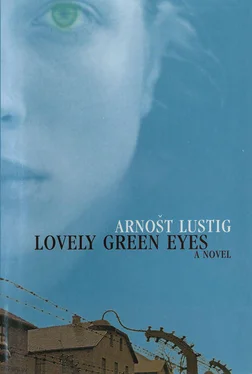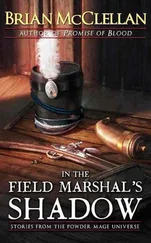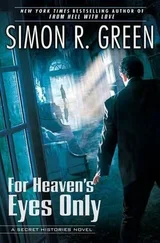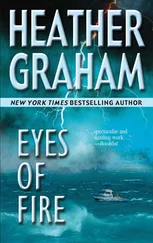“They hang from the trees like dirty stockings.”
They could hear a train. The Ostbahn, the eastern railway. He knew all the main stations and railheads. She’d not believe how many camps he’d served in, how many he’d visited in an official capacity. He was warmed through now. He started whistling. Sweat appeared on his rather low forehead, or was it melted snow? His scar glistened on his forehead. It reminded her of what a corporal had told her about the Maginot Line winding along the frontier until the Germans passed through it like a knife through butter.
“Hatred changes to joy in me, to a special kind of joy, perhaps to Schadenfreude,” he said. “I couldn’t live without hatred any more. To deprive me of hatred would be like depriving me of oxygen. Like pulling the ground away under my feet. Like walking on one leg, like fighting with one arm. While I hate, I am. While you hate, you are.”
He wanted to know what she hated.
“I don’t know,” she said. “I’m afraid to hate.”
“You’re making a mistake. Once you’ve learned to hate you’ll realize what you’ve missed.”
“Perhaps,” she said, avoiding his gaze.
“You should look at me.”
He waited for her to ask why, so he could tell her she would find out, but she didn’t ask. People who could not hate were like a rag for wiping the floor.
The Obersturmführer unbuckled his belt, took his pistol from its holster. He stepped over to the window. He had quite a job opening it; it was frozen to the frame by snow and ice. No-one had opened it since the autumn. The storm swept into the cubicle. The Obersturmführer drew the chair up to the window and climbed onto it. He looked out into the twilight. In the blizzard, as though behind a curtain of mist, wolves were moving. He released the safety catch, aimed and waited before firing.
“Not too bad for the first shot!” He was pleased.
“Last time I got a she-wolf. I stepped on her lower jaw and tore her mouth apart till she bled to death. You should know what that means.”
He realized that she wouldn’t understand if she hadn’t been taught the Teutonic legends.
“Victory goes to the strongest, the fastest, the best prepared,” he said.
He took a deep breath and continued.
“The best thing you can do is what you do just like that, without reason. That’s what amazes those we overcome. They don’t understand.”
Two minutes later he fired again. Sharp, frosty air filled the cubicle. She was standing by the bed, in the draught, feeling cold. She wasn’t sure whether she dared put on her coat. He emptied his magazine.
“I shouldn’t have done that — fired my last round. A soldier should save that for himself. What do you think?”
She remained silent. Only later did she understand why he’d said that. He was not as simple as he pretended, even though some of his sentences were assembled as though from a child’s building set.
Just as laboriously as he had opened it, he shut the window. She was glad the glass didn’t fall out.
“Practice kills boredom,” he said. “It passes the time.”
He saw that she was cold. Closing the window did not immediately warm up the room. “Put some more fuel on the fire,” he commanded.
He carried the chair to the stove and returned his pistol to its holster.
“I’m a good shot,” he said.
She went to stoke up the fire, relieved to get to the stove. She put three shovelfuls of coal on top of a birch log. It was damp. She warned the Obersturmführer that it would smoke for a while. She shut the stove door, taking care not to soil her new clothes, then waited for his instructions.
“They ought to supply you with anthracite,” he said.
“I take the coal from the pile by the kitchen.”
“It’s Scheisse from the mines further up the river. I hope they ship the better coal to the Reich.”
“It doesn’t draw well.”
“You should have put it on earlier.”
“I put on two shovelfuls.”
She picked up a rag and mopped up the little puddles that had formed when the Obersturmführer opened the window. It was almost dark. Sarazin hung his belt over the back of the chair. She washed her hands and lit a candle. The candlelight gave the evening outside a purple hue.
Again she saw the scar on his head. It went from the roots of his hair along his forehead and circled his skull.
“I prefer wolves to people. At night they pursue the moon. Ifs a world we don’t know yet.”
He spoke in a different tone from when he spoke of the Jews. Snow and blood, he told her, were pure colours for him. They marked the purity of the territory, the purity of the thought that inspired him: Germany from the Rhine to the Urals; with its allies from the Bay of Biscay to Latvia. Conquered territory on which — one day — vast numbers of Germans would live. A Nazi structure similar to a system of dykes. Rivers flowing into a German sea. A wonderful ocean not yet on any map. Compensation for centuries, or millennia, when they’d had to crowd into territory smaller than their worth. Just as Germany was once almost lost on the map of Europe, so the subjugated countries would now be lost within Greater Germany.
“No more rotten wooden synagogues, which burnt more quickly than showy Viennese stoves of marble and granite with false oriental decorations, as if they stood in Jerusalem. If the circumcised were given a free hand, there’d be Jerusalem everywhere. Do you hear me?”
“I hear you.”
“You aren’t saying either yes or no.”
“I’m saying yes.”
“Jawohl. That’s what I like to hear. Schon gut…”
He thought of what he’d had to give up in order to purify himself, to liberate himself.
She was looking at his holster. How many bullets had he left? Surely he would have more than one magazine and changing magazines was easy? Perhaps he wouldn’t wish to shoot again and make her freeze in the cold draught.
“Stoke up as much as you can,” he said.
“As you wish.”
She piled more coal on and raked the grate from underneath. The heat breathed into her face, her hands, her chest. Whatever she did, the damp brown coal would burn slowly. Again the place would be full of smoke.
“It’s smoking,” she said cautiously.
She could not be sure of the meaning of anything he said.
“You like mucking about on the floor?”
“I don’t know what you mean.”
“Isn’t it more comfortable in bed?”
She didn’t know what to say.
No-one had come yet without wanting what they all wanted. It might be the last thing they ever enjoyed. She shouldn’t expect more from his babbling than simply a preface to the usual. She did not wish to think of her back, her belly, her joints. She would have to rely on being young and in good health. Nor was there any point in tormenting herself with thoughts of sin. Whenever she undressed she persuaded herself that she was slipping on a protective ring. Or that she was hanging on to a weir or to rocks in a river in flood.
She felt beads of perspiration on her forehead, and wiped them off. She concentrated on the stove, on the coal box and what was left of the firewood. She stretched her fingers which had been gripping the coal shovel. The mist in the Obersturmführer’s eyes was fixed on her. She knew what this meant.
There was silence in the cubicle. Only the wick with the little flame spluttered.
“I’ll mix you with a drop of my blood,” he said.
On his uniform there were ribbons — the Iron Cross, the Blutorden, the Nazi Party’s Blood Order. From the pocket ofhis tunic with its silver buttons he produced some cords.
“Don’t be afraid, I’m not going to hang you. Are you afraid?”
“No,” she lied.
Читать дальше


![Корнелл Вулрич - Eyes That Watch You [= The Case of the Talking Eyes]](/books/32103/kornell-vulrich-eyes-that-watch-you-the-case-of-thumb.webp)









